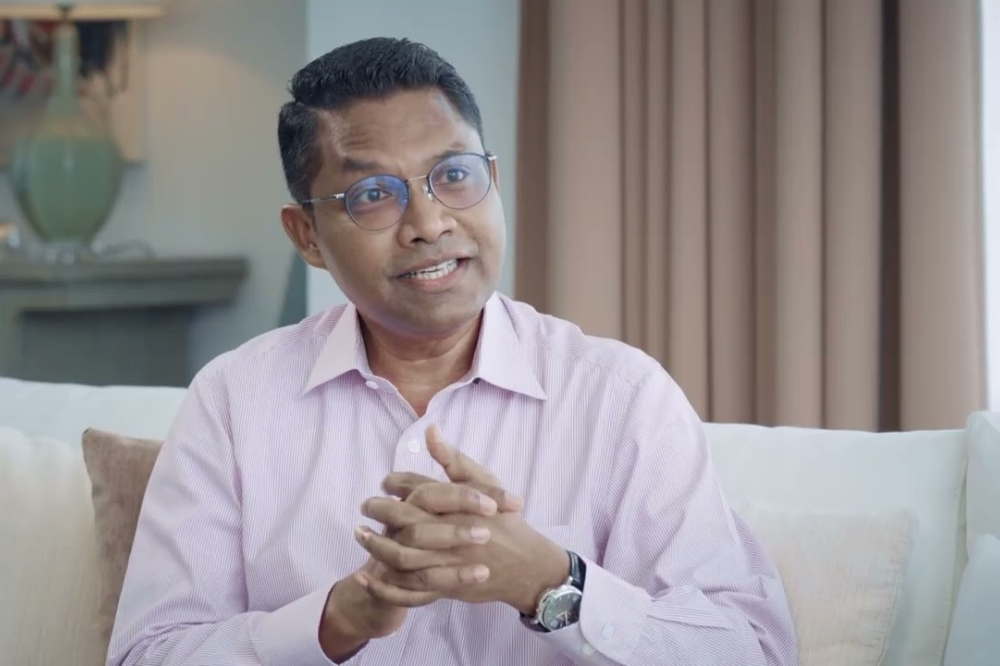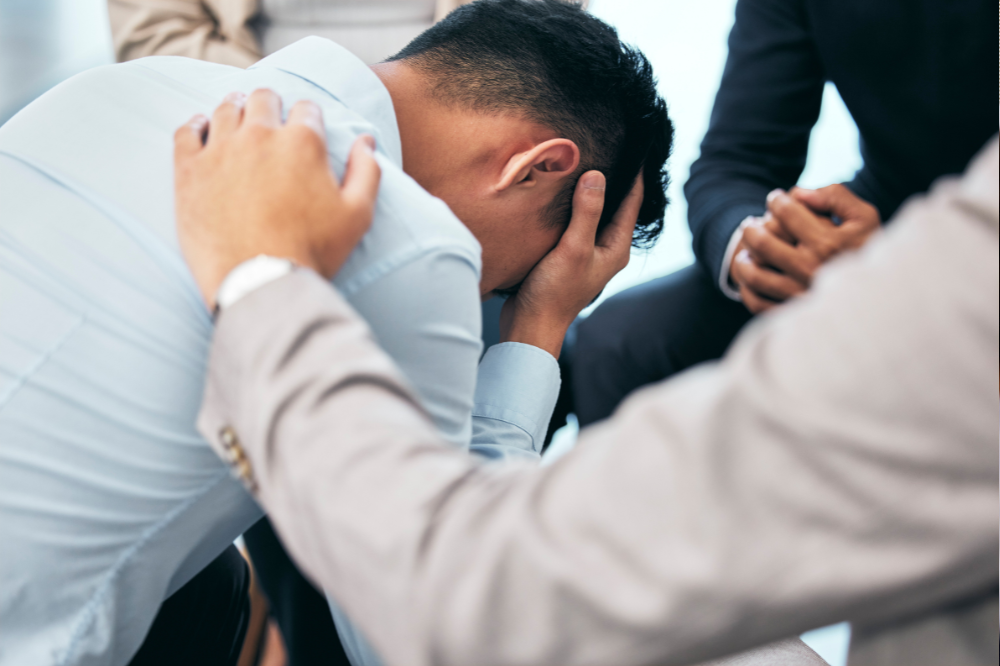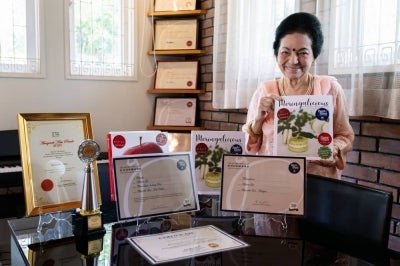Why it’s time to put mental health first at work
Companies need to shift "from being reactive to being proactive."

GOING through day-to-day work can sometimes feel like being pulled into a complex vortex of chaos — juggling emails, back-to-back meetings, deadlines, and that ever-growing to-do list, all while trying to keep your sanity intact. Sound familiar?
In the midst of all that hustle, stress and burnout creep in quietly, often dismissed as just part of the job. In most Malaysian workplaces, mental health is still seen as a personal issue rather than an organisational responsibility, says mental health expert, Prof Dr Andrew Mohanraj, President of the Malaysian Mental Health Association.
He emphasised the fact that prevention is rarely taken into account when it comes to crisis management at work, and that people react to illnesses rather than addressing the root causes.
Concerned about what more could be done, he highlighted the role of the organisational level of companies, needing to shift "from being reactive to being proactive."
"There is a need to embrace mental health into core HR policies—not as an afterthought, but as a business priority. Regular well-being audits, just like financial ones, should be conducted to assess stress levels, workload equity, and psychological safety," he said.
He added that mental health literacy for all staff is important—from interns to CEOs—in order to understand the early signs of stress and how to seek help.
We spend a large part of our lives at work, making it a possible source of chronic stress, quietly eroding not just our mental health but also our physical health, he said.

"In Malaysia, where working long hours and juggling multiple responsibilities is often seen as a badge of honour, many may not realise when stress crosses the line from 'just part of the job' to something more dangerous," he said.
Iterating that common sources of stress at work include unrealistic deadlines, lack of support, poor communication, and job insecurity, he said that our bodies would default to staying in 'fight or flight' mode.
"Over time, this continuous activation of the stress response wears us down," he said.
He added that physical impacts include high blood pressure, heart disease, weakened immune system, tension headaches, migraines, poor sleep, and fatigue.
For the mental aspect, it could contribute to burnout, anxiety and depression, irritability, mood swings, difficulty concentrating, and reduced motivation and job satisfaction, he said, adding that people should look out for early warning signs.
"Early warning signs to watch for include feeling exhausted even after a full night's sleep, increased absenteeism or frequent minor illnesses, and trouble focusing or making decisions," he said.
"Watch also for changes in appetite or weight, withdrawing from colleagues or social activities, and a constant sense of dread about work," he added.
TOXIC WORKPLACE CULTURE
Andrew emphasised the importance of watching out for toxic workplace culture, which may not only include unrealistic workload, but also glorifying overworking and seeing taking leave as a sign of weakness. Employers also tend to micromanage, apply rigid rules, and not trust employees to make decisions.
As a result, it could lead to exhaustion, burnout, feelings of helplessness, and frustration—all of which could lead to the deterioration of both mental and physical health.
"Employees are expected to be available at all times, even after hours, and these patterns fuel chronic stress and burnout—though the patterns have been accepted as 'normal', becoming damaging over time," he said.
"Autonomy is essential for motivation and job satisfaction.
"Tight deadlines, ever-growing task lists, and unclear expectations can make employees feel like they are never good enough, fuelling anxiety and reducing self-worth," Andrew said.
He also highlighted that managers should be approachable, not dismissive of concerns, and offer guidance to avoid the culture of silence at the workplace, which could make employees in such environments feel isolated and unsupported.
Furthermore, a toxic workplace would endorse toxic competition and blame culture, which encourages employees to pit against each other and practise punishing mistakes without allowing room for learning—this, in return, increases stress and lowers morale.
Not only does it lead to work feeling undervalued and disconnected from a larger purpose, it could further lead to disengagement and emotional exhaustion, the psychiatrist said.

WHAT CAN BE DONE
Andrew said that deeper, structural changes are needed—beyond offering mental health days, flexible hours, and employee assistance programmes.
"If companies want to truly reduce workplace stress and promote well-being, they must go beyond surface-level perks," he said.
"Employees should feel safe to speak up, raise concerns, or admit they are struggling without fear of judgment or consequences," he said, adding that it starts with empathetic leadership and open-door communication.
"Supervisors and team leaders need training—not just in KPIs and performance reviews, but also in emotional intelligence and how to support staff through tough times," he added.
Andrew highlighted that enforcing reasonable working hours, limiting after-hours communication, and making it clear that rest is valued and not penalised are among the ways to help lift the burden of employees going to work every day.
"Flexible schedules help, but they must be accompanied by a culture that respects boundaries—by encouraging work-life balance and meaning it," he said.
He emphasised that jobs should be structured in a way that offers purpose, clarity, and achievable goals—where regular check-ins could help redistribute workloads and prevent chronic overwhelm.
Upon addressing outreach that could be done, he said that mental health professionals should be brought in for workshops, creating peer support groups, and providing stress management resources.
"Measure what matters—not just by tracking productivity or profit, but by tracking engagement, well-being, absenteeism, and staff retention. These are key indicators of a healthy workforce," he said in an interview with Sinar Daily.
MENTAL HEALTH: TABOO?
Andrew urged for national guidelines on psychosocial risk management, backed by enforcement, to combat the issue being perceived as a taboo—further standardising best practices across industries to enhance the people’s mental health.
He also highlighted the need for incentives for companies that prioritise employee mental health, such as tax reliefs or public recognition, which could drive cultural change and bring the structural transformation needed for improved well-being from both the mental and physical aspects.
"It is important to integrate mental health into occupational health regulations, ensuring that stress-related illnesses are acknowledged and covered just like physical injuries," he added.
Looking ahead, he said that Malaysia has made a fair share of strides in mental health awareness—only lacking in the context of the workplace. "There is still a gap between intention and action," he said.
"The future of work must be built not just on productivity but on people—on their health, dignity, and right to thrive."
Download Sinar Daily application.Click Here!















